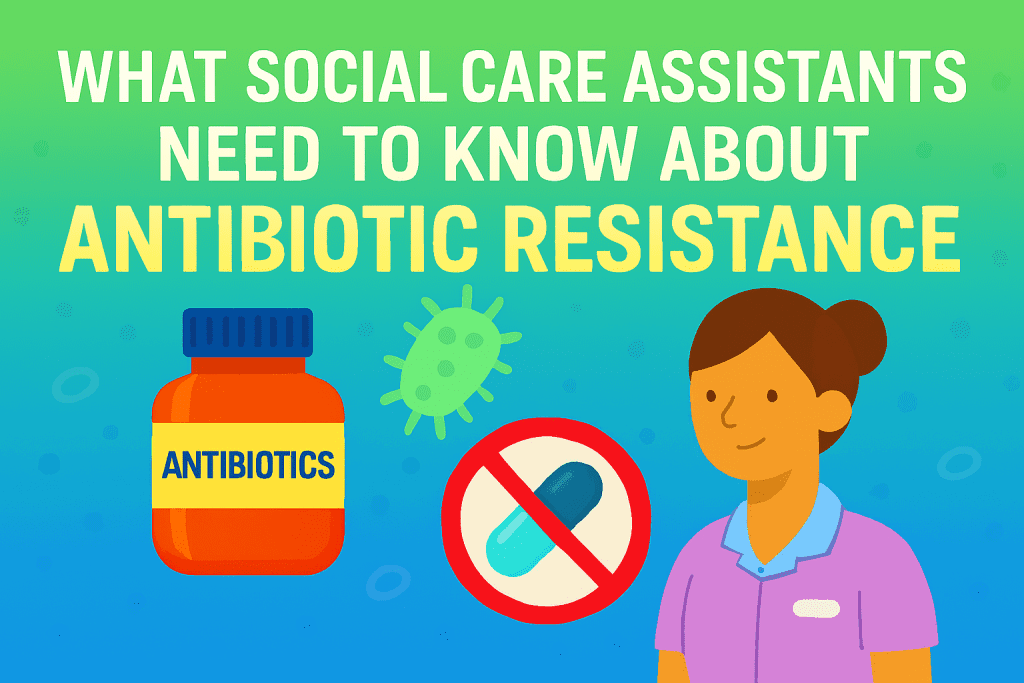A simplified, practical guide to AMR and how it affects care settings
👋 Why This Matters to You
As a social care assistant, you’re on the front line of care—supporting people who are often the most vulnerable to infections. But did you know that the way we use antibiotics in care settings can have a lasting impact on public health?
Antibiotic resistance (also called antimicrobial resistance or AMR) is when bacteria stop responding to the medicines designed to kill them. This makes infections harder to treat and increases the risk of complications, especially for older adults and people with weakened immune systems.
🦠 What Is Antibiotic Resistance?
Antibiotics are powerful medicines used to treat bacterial infections. But when they’re used too often—or not used properly—bacteria can adapt and become resistant. That means:
- Infections last longer
- Treatments become less effective
- The risk of spreading infection increases
In care homes and community settings, this can be especially dangerous.
🏥 How It Affects Your Work
You might not prescribe antibiotics, but your role is still vital in preventing resistance. Here’s how AMR shows up in your day-to-day work:
- Recurrent infections in clients that don’t respond to usual treatments
- Longer recovery times after illness
- Increased hospital admissions due to complications
- More pressure on the NHS and care teams
🧼 What You Can Do to Help
You play a key role in protecting clients and slowing the spread of resistance. Here are some practical steps:
✅ 1. Practice Excellent Hygiene
- Wash hands thoroughly between clients
- Use gloves and PPE correctly
- Clean shared equipment regularly
✅ 2. Spot Early Signs of Infection
- Report changes in temperature, confusion, or appetite
- Encourage clients to drink fluids and rest
- Keep records of symptoms and escalate concerns quickly
✅ 3. Support Proper Antibiotic Use
- Never encourage clients to save or share antibiotics
- Remind them to finish the full course—even if they feel better
- Help explain why antibiotics aren’t always needed (e.g. for colds or flu)
✅ 4. Stay Informed
- Take part in infection control training
- Ask questions if you’re unsure about procedures
- Share what you learn with colleagues
💬 Talking to Clients and Families
Sometimes, families expect antibiotics for every illness. You can help by:
- Explaining that antibiotics don’t work for viruses
- Reassuring them that the GP will only prescribe when necessary
- Encouraging rest, fluids, and monitoring instead of rushing to medicate
🌍 You’re Part of the Bigger Picture
Antibiotic resistance isn’t just a hospital issue—it’s a community issue. By staying alert, informed, and proactive, you’re helping protect your clients, your colleagues, and the future of healthcare.
Follow us on Facebook
Read more blogs here


